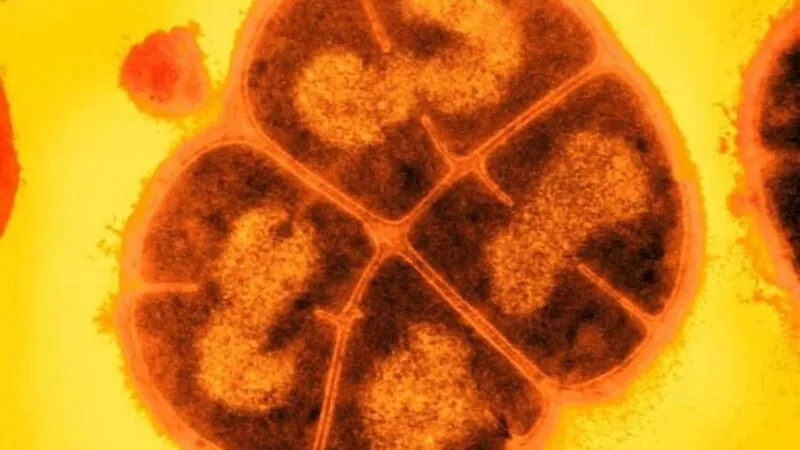
Meet ‘Conan the Bacterium’: The Radiation-Defying Microbe Paving the Way for Revolutionary Antioxidants
2024-12-16
Author: Nur
A remarkable bacterium, Deinococcus radiodurans, affectionately nicknamed "Conan the Bacterium," is driving scientific advancement in radiation resistance, with implications for human health on Earth and during space voyages. This extremophile can endure radiation levels thousands of times higher than the lethal dose for humans, setting it apart from most life forms.
Michael Daly, an expert on D. radiodurans at the Uniformed Services University in Maryland, explains that ionizing radiation—including X-rays, gamma rays, and cosmic rays—is detrimental to all living beings. For humans, exposure can lead to acute radiation syndrome, elevated cancer risks, and extensive tissue damage.
D. radiodurans is equipped with a unique arsenal of protective strategies. Its extraordinary radiation resistance stems from a robust cell wall, sophisticated DNA repair mechanisms, and a variety of antioxidants that combat the harmful free radicals generated by ionizing radiation.
In an exciting recent study published in the journal PNAS, researchers, inspired by D. radiodurans, engineered a new antioxidant, termed manganese-dependent peptide (MDP). This innovation aims to replicate the potent radioprotective effects of the bacterium’s naturally occurring antioxidant.
The new antioxidant operates through a complex involving manganese ions, a phosphate ion, and a specially designed peptide tailored from the amino acids prevalent in D. radiodurans. Preliminary findings reveal that when combined, these components can form bonds strong enough to withstand over 12,000 times the lethal radiation dose for humans.
The lead researchers were initially skeptical about the efficacy of MDP. Brian Hoffman, a co-author and professor at Northwestern University, expressed doubts but was pleasantly surprised to discover that the interaction between the components created a more powerful protective complex.
As investigations proceed, the team aims to uncover the structural intricacies of MDP to understand its exceptional functionality better and enhance its effectiveness. This line of research is particularly timely as space exploration rapidly progresses.
Astronauts venturing on long-duration missions—such as those planned for Mars—are particularly vulnerable to chronic high levels of ionizing radiation. MDP presents a promising solution as an inexpensive, non-toxic radioprotector that could be taken orally to help shield the crew from harmful space radiation.
On a terrestrial level, the researchers are excited about MDP's potential applications to enhance human health. There are hopes that this antioxidant could help prevent acute radiation syndrome and combat oxidative stress linked to aging.
While more studies are necessary to ensure that MDP is safe and effective for human use, the ramifications of this breakthrough technology could stretch far beyond the laboratory—extending from health care advancements to bolstering human resilience in the harsh environments of space.
Stay tuned as scientists uncover how the fascinating world of extremophiles like "Conan the Bacterium" could ultimately change our approach to health and safety in both earthly and extraterrestrial settings!




 Brasil (PT)
Brasil (PT)
 Canada (EN)
Canada (EN)
 Chile (ES)
Chile (ES)
 España (ES)
España (ES)
 France (FR)
France (FR)
 Hong Kong (EN)
Hong Kong (EN)
 Italia (IT)
Italia (IT)
 日本 (JA)
日本 (JA)
 Magyarország (HU)
Magyarország (HU)
 Norge (NO)
Norge (NO)
 Polska (PL)
Polska (PL)
 Schweiz (DE)
Schweiz (DE)
 Singapore (EN)
Singapore (EN)
 Sverige (SV)
Sverige (SV)
 Suomi (FI)
Suomi (FI)
 Türkiye (TR)
Türkiye (TR)